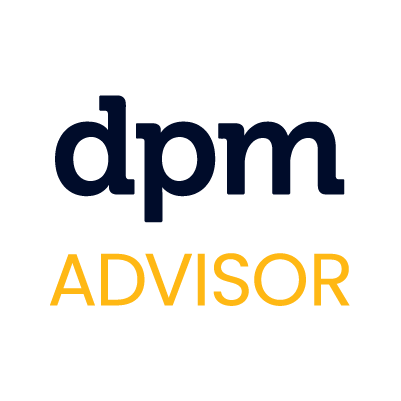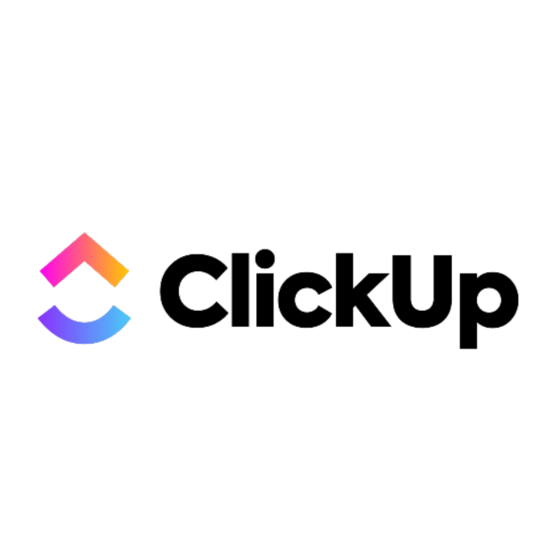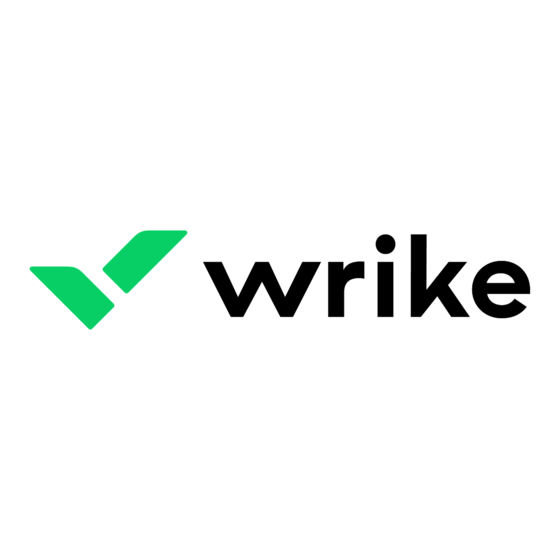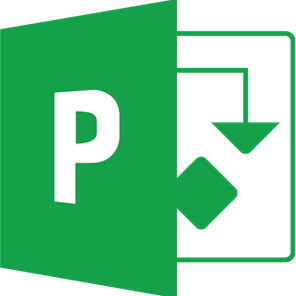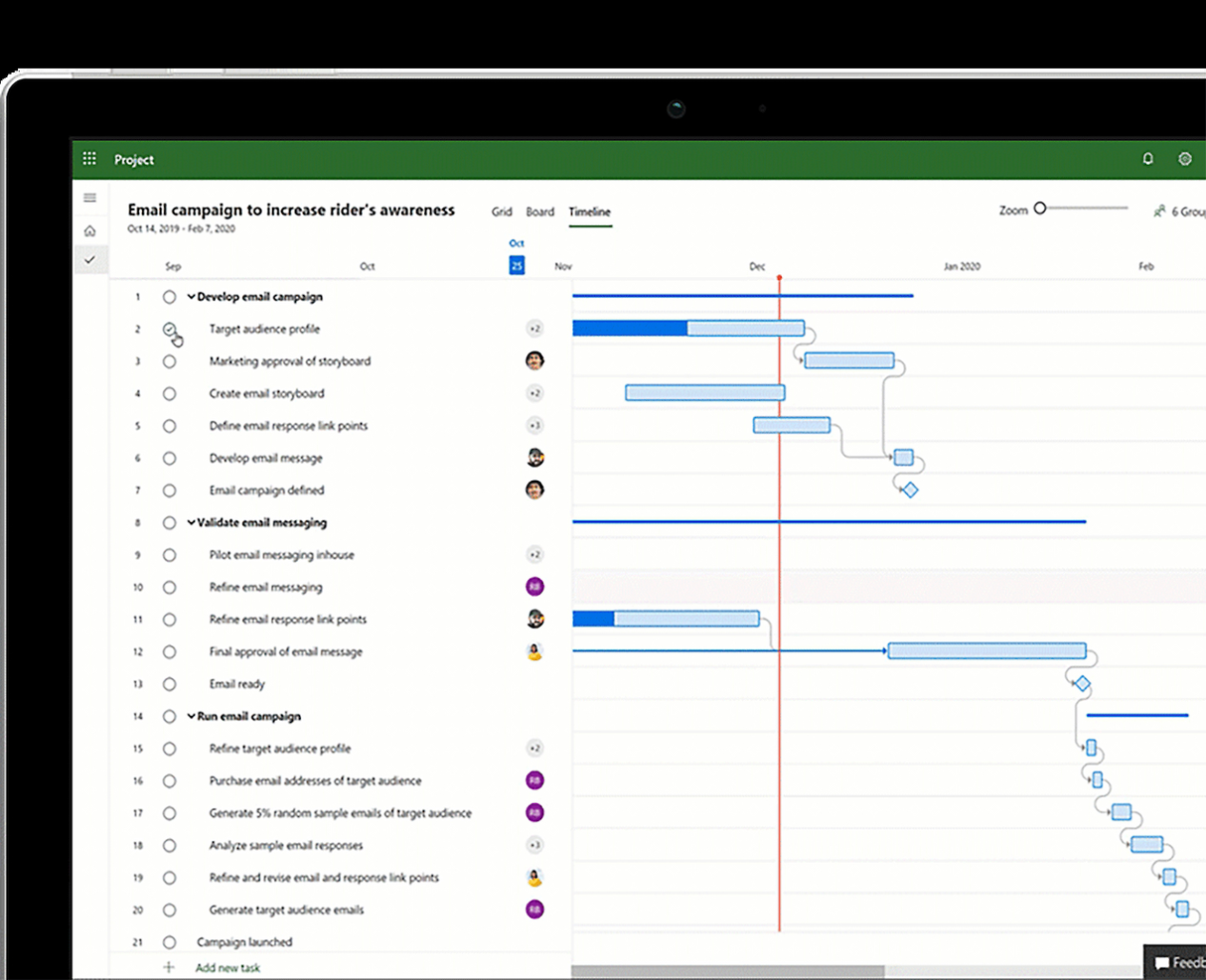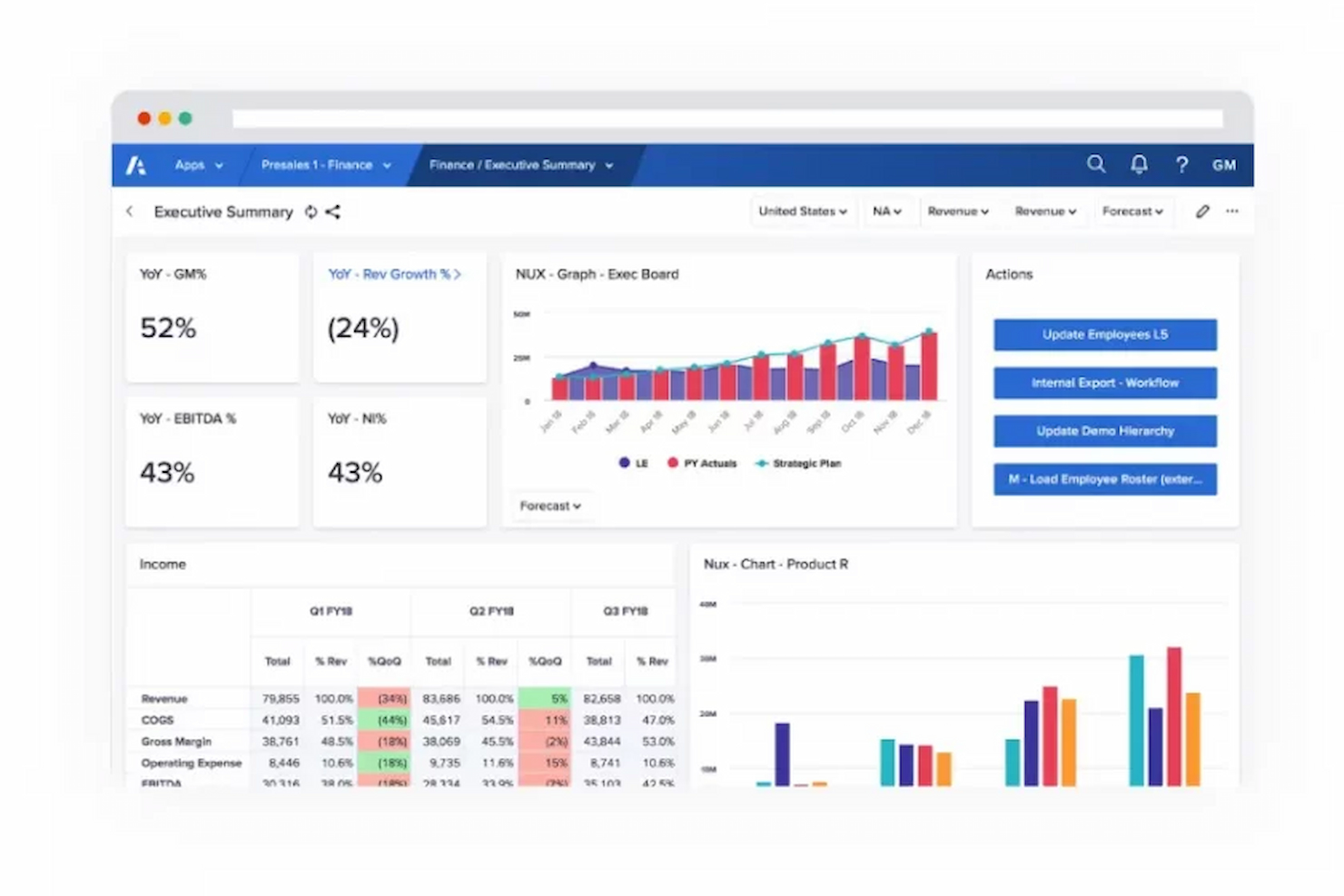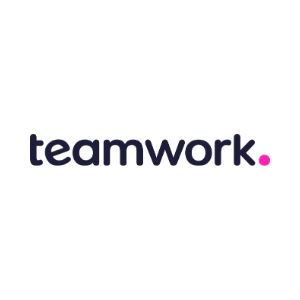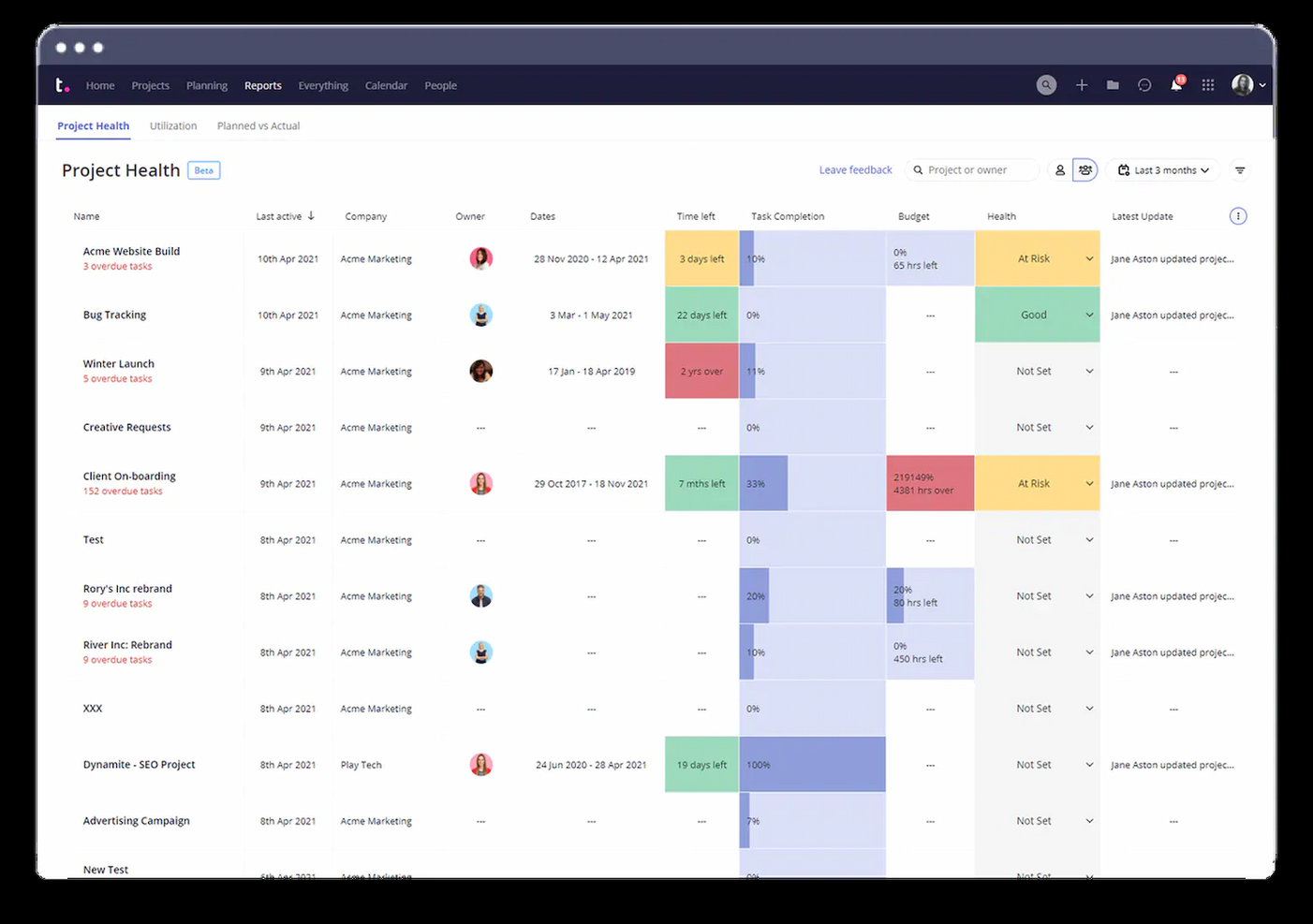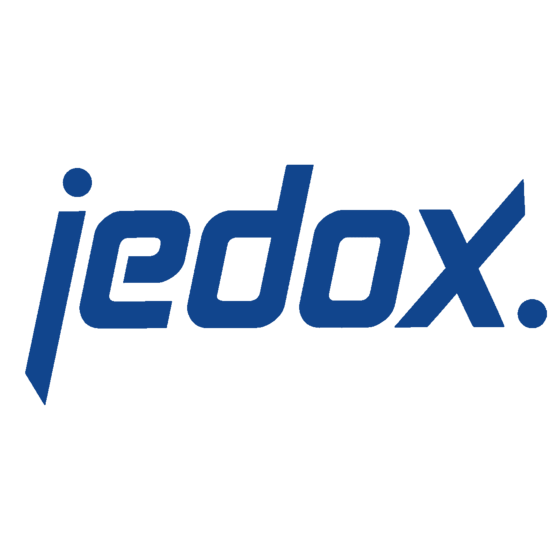Best Project Cost Management Software Shortlist
Here's my pick of the 10 best software from the 20 tools reviewed.
Get free help from our project management software advisors to find your match.
Finding the right project cost management software can be challenging. With several options on the market, it can be difficult knowing which solution will fit best with your team. Using my extensive experience in digital project management and productivity tools, I've tested and reviewed some of the best project cost management software available. Based on my findings, I can provide insights and recommendations to help you make an informed decision tailored to your team's specific needs and budget.
Why Trust Our Software Reviews
We’ve been testing and reviewing project management software since 2012. As project managers ourselves, we know how critical and difficult it is to make the right decision when selecting software.
We invest in deep research to help our audience make better software purchasing decisions. We’ve tested more than 2,000 tools for different project management use cases and written over 1,000 comprehensive software reviews. Learn how we stay transparent & our software review methodology.
Best Project Cost Management Software Summary
| Tools | Price | |
|---|---|---|
| Bonsai Agency Software | $10/user/month | Website |
| Microsoft Project | From $10/user/month (billed annually) | Website |
| Forecast | Pricing upon request | Website |
| Anaplan | Pricing upon request | Website |
| Procore | Pricing upon request | Website |
| Teamwork | From $11/user/month (billed annually) + free plan available | Website |
| Jedox | Pricing upon request | Website |
| Workday Adaptive Planning | Pricing upon request | Website |
| NetSuite ERP | From $99/user/month (min 10 seats, billed annually) | Website |
| IBM Planning Analytics | From $45/user/month (min 5 seats, billed annually) | Website |
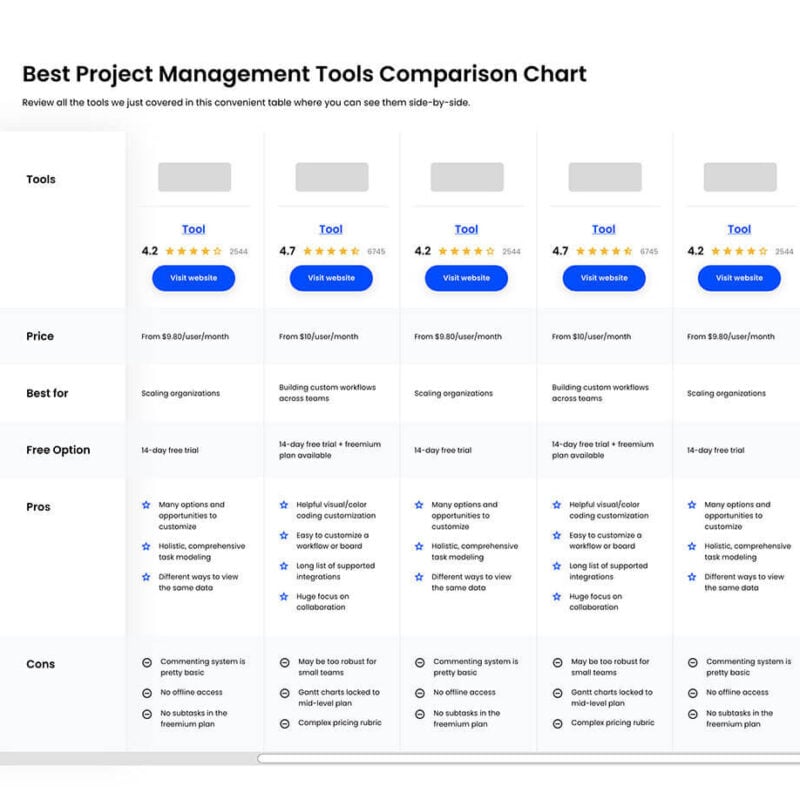
Compare Software Specs Side by Side
Use our comparison chart to review and evaluate software specs side-by-side.
Compare SoftwareHow to Choose Project Cost Management Software
As you work through your unique software selection process, keep the following points in mind:
- Budget Alignment: Ensure the software aligns with your financial constraints without compromising on essential features.
- Integration Capabilities: Look for software that can integrate with your existing systems to avoid data silos. For example, a construction company might need software that works with their on-site reporting tools to maintain real-time budget tracking.
- Scalability: Choose a solution that can grow with your business. A startup should consider whether the software can handle an increasing number of projects and transactions as the company expands.
- User-Friendly Interface: Opt for software with an intuitive interface to reduce training time and errors. For example, a non-profit organization with volunteers of varying tech skills will benefit from easy-to-use software to manage donations and grants.
- Customization and Reporting: Look for software that offers customizable reporting features to meet specific project needs. For example, a marketing agency may require detailed reports on campaign costs to adjust strategies and report to clients effectively.
Best Project Cost Management Software Reviews
Choosing the best project cost management software is crucial for maintaining budget control and ensuring project success. Below, I will explore the top-rated solutions, examining their features, benefits, pricing, and potential drawbacks to help you find the ideal tool for your project management needs.
Best for agencies, consultancies, and professional service firms
Bonsai is a comprehensive business software designed for agencies, consultancies, and professional service firms, offering integrated project management and other essential tools for efficient operations.
Why I picked Bonsai:
Bonsai is a strong project cost management software thanks to its comprehensive financial tracking features. It allows users to monitor project budgets with real-time expense tracking and detailed financial reports. The platform's invoicing system supports automated billing, ensuring accurate and timely payments. Additionally, Bonsai's integration of time tracking enables users to log billable hours, directly linking work done to project costs.
Standout features & integrations:
Features include task and project management, a client portal, reports and analytics, client management, invoicing, contracts and proposals, time tracking, collaboration, capacity and resource management, and templates for contracts, proposals, invoices, quotes, scopes of work, briefs, and forms.
Integrations include Xero, Slack, Gmail, ClickUp, HubSpot, Google Drive, Google Sheets, QuickBooks Online, Trello, Notion, Mailchimp, and Asana.
Pros and cons
Pros:
- Invoicing features directly within the platform
- Integrated project, client, and financial management
- Templates for documents
Cons:
- Resource planning features limited to higher-tier plans
- Mobile app is less robust than the desktop version
Microsoft Project provides tools to plan, track, and manage project budgets, ensuring expenses stay within the allocated budget through real-time cost tracking and resource management.
Why I picked Microsoft Project:
Microsoft Project's ability to manage large and complex projects with ease makes it a standout choice among project cost management tools. It offers comprehensive tools for detailed budgeting and cost control, allowing users to manage and track project expenses efficiently. I believe it's best for robust project scheduling because it offers a suite of advanced features that cater to the detailed planning and tracking needs of project managers, ensuring that every phase of the project is accounted for and scheduled appropriately.
Standout features & integrations:
Features include task scheduling, project planning, resource management, Gantt charts, timeline view, budget tracking, timesheet submission, reporting and analytics, collaboration tools, custom project templates, risk management, workload management, critical path analysis, automated workflows, real-time updates, and mobile app support.
Integrations include Microsoft Teams, Power BI, Microsoft 365, Azure, OneDrive, SharePoint, Skype for Business, Outlook, Excel, and Power Automate.
Pros and cons
Pros:
- Power BI dashboards for detailed project insights
- Integration with Microsoft Teams for enhanced collaboration
- Advanced scheduling features for complex projects
Cons:
- May have a steep learning curve for new users
- Can be complex for beginners
Forecast is an AI-powered project management and resource planning platform designed to optimize project planning, scheduling, and team collaboration. It offers features such as project planning, time tracking, budget management, and predictive analytics, making it a valuable tool for teams managing complex projects and resources effectively.
Why I picked Forecast:
Forecast leverages artificial intelligence to provide accurate project forecasts, budget tracking, and resource allocation, ensuring that projects stay within budget and deadlines. Its intuitive interface and real-time analytics offer clear visibility into project financials, enabling proactive decision-making and efficient management of project costs. I believe Forecast is best for AI project management because it not only offers traditional project management features but also enhances them with AI, making complex project planning and execution more efficient.
Standout features & integrations:
Features include AI-powered project planning, budget management, time tracking, resource allocation, real-time analytics, task scheduling, customizable templates, predictive insights, workflow automation, collaborative workspaces, project timelines, expense tracking, detailed reporting, and mobile app support.
Integrations include Jira, Trello, Google Drive, Slack, GitHub, GitLab, QuickBooks, Xero, Salesforce, and Zendesk.
Pros and cons
Pros:
- Flexible management of various project types
- Comprehensive financial tracking across projects
- AI-powered insights for project planning
Cons:
- The starting plan requires a minimum of 25 users, which may not be suitable for smaller teams
- May have a learning curve for new users due to advanced features
Anaplan is a cloud-based planning and performance management platform that enables businesses to connect data, people, and plans across all functions for better decision-making and improved operational efficiency.
Why I picked Anaplan:
Anaplan is a good project cost management software because it offers a robust, cloud-based platform that integrates financial planning, budgeting, and forecasting with real-time data and advanced analytics. Its flexible modeling capabilities allow for the creation of detailed, customized financial plans that can adapt to changing business needs. I believe Anaplan to be best for connected planning due to its unified platform that fosters immediate planning and decision-making, which is essential for effective project cost management.
Standout features & integrations:
Features include workforce planning, bottoms-up and driver-based planning, capital expenditure planning, and enhanced workflow and user experience capabilities.
Integrations include Salesforce, Workday, Oracle, SAP, Tableau, Microsoft Power BI, Google Sheets, IBM Cognos, Adaptive Insights, and NetSuite.
Pros and cons
Pros:
- Offers flexible modeling and planning tools
- Integrates planning across business functions
- Enables real-time planning and decision-making
Cons:
- Limited customer support
- Possible steep learning curve for new users
Procore Technologies provides applications for budgeting, spending tracking, and real-time financial management. It lets users construct precise budgets, compare actual expenses to estimates, and generate financial reports.
Why I picked Procore Technologies:
Procore Technologies provides a robust feature set that caters specifically to the construction industry's needs. Its ability to handle complex project demands and facilitate collaboration among various stakeholders makes it stand out from other construction management software. I believe Procore is best for construction management because it provides a centralized platform for managing all aspects of construction projects, from pre-construction to project execution and financial management, ensuring that projects are completed safely, on time, and within budget.
Standout features & integrations:
Features include bid management, quality and safety management, financial management, and construction intelligence. The platform also provides workforce management tools and analytics to help optimize project performance.
Integrations include Autodesk BIM 360, Bluebeam, Microsoft 365, Sage, Quickbooks, Viewpoint, Box, Egnyte, Docusign, and PlanGrid.
Pros and cons
Pros:
- Offer robust reporting and analytics
- A suite of tools covering the entire project lifecycle
- Real-time data and collaboration across all stakeholders
Cons:
- Limited mobile app functionality
- The complexity of features may require a learning curve for new users
Teamwork enables efficient spending tracking, budget management, and resource allocation through sophisticated collaboration features and client-specific project tracking.
Why I picked Teamwork:
Teamwork provides a comprehensive solution for client work management, differentiating itself from other project cost management tools with its client-centric features. Its detailed collaboration capabilities ensure that all team members are aligned and informed, reducing the risk of budget overruns. I believe Teamwork is best for client work management due to its ability to streamline workflows, centralize communication, and provide visibility into project profitability, which is important for managing client relationships effectively.
Standout features & integrations:
Features include task management, project planning, time tracking, budget management, expense tracking, real-time collaboration, Gantt charts, custom workflows, detailed reporting, file sharing, milestone tracking, project templates, mobile app support, and resource management.
Integrations include Slack, Zapier, Microsoft Teams, Google Drive, QuickBooks, Dropbox, Trello, Salesforce, and HubSpot.
Pros and cons
Pros:
- Integrations with popular tools for seamless workflow
- Real-time tracking of project performance and financials
- Customizable project budgets for various types of work
Cons:
- User interface isn't immediately intuitive
- Slower processing times for larger projects
Jedox enables efficient budget tracking and resource allocation. With its advanced features and simple interface, it helps projects stay within budget and on time, making it an excellent alternative for successful financial management.
Why I picked Jedox:
Jedox helps teams streamline complex planning and analysis across multiple business functions. Its versatility in handling tasks from finance to supply chain management sets it apart from other software. I believe Jedox is the best for performance management due to its robust self-service budgeting, planning, and forecasting capabilities, coupled with powerful analytics within a unified platform.
Standout features & integrations:
Features include integrated business planning, budgeting and forecasting, financial consolidation, data integration, advanced analytics, customizable dashboards, real-time data updates, collaborative planning, predictive analytics, multi-dimensional modeling, workflow automation, version control, audit trails, and cloud and on-premise deployment options.
Integrations include Microsoft Excel, Microsoft Power BI, Tableau, Qlik, SAP, Salesforce, Oracle, Google Sheets, IBM Planning Analytics, and Microsoft Dynamics.
Pros and cons
Pros:
- Intuitive self-service features
- Adaptable across various business functions
- Comprehensive planning, analysis, and reporting tools
Cons:
- Less customization options compared to other solutions
- Complex software implementation process
Workday Adaptive Planning improves project cost management with its intuitive interface and powerful features, facilitating smooth budget tracking and resource allocation. Its real-time insights and forecasting capabilities ensure projects stay within budget and on schedule.
Why I picked Workday Adaptive Planning:
Workday Adaptive Planning provides users with robust financial planning, budgeting, and forecasting tools that help organizations effectively manage project costs and resources. Its user-friendly interface and powerful analytics capabilities enable accurate tracking and reporting of financial data, ensuring transparency and informed decision-making. I believe it is best for enterprise planning due to its advanced AI and machine learning capabilities, which enable organizations to make informed decisions quickly and with confidence.
Standout features & integrations:
Features include a user-friendly interface, deep insights with AI and machine learning, built-in analytics, flexible structures and models, and a scalable platform.
Integrations include Salesforce, NetSuite, Microsoft Dynamics, Sage Intacct, Workday Financial Management, Oracle, Microsoft Excel, Tableau, Power BI, and Qlik.
Pros and cons
Pros:
- Industry-specific solutions for tailored planning across sectors
- Integration with various ERP/GL systems for comprehensive planning
- AI and machine learning for advanced planning capabilities
Cons:
- Potential steep learning curve
- Deployment time may vary depending on the organization's size and complexity
NetSuite ERP leverages financial data to provide accurate budgeting and expense management. Its real-time analytics and reporting capabilities assist in keeping projects on schedule and meeting budgetary objectives.
Why I picked NetSuite ERP:
NetSuite ERP offers a robust and integrated suite that manages business processes in a single system. Its cloud-based nature ensures real-time visibility into operations, making it distinct from other business management solutions. I believe NetSuite ERP is best for a business management suite because it provides a unified platform that supports various business functions, including project cost management, which is important for maintaining profitability and efficiency.
Standout features & integrations:
Features include financial management, customer relationship management, inventory and order management, supply chain management, human capital management, e-commerce, project management, business intelligence and analytics, multi-currency and multi-language support, customizable dashboards, real-time data access, automated workflows, compliance management, and mobile app support.
Integrations include Salesforce, Oracle, SAP, Microsoft Dynamics, QuickBooks, Slack, Google Workspace, Adobe Creative Cloud, Jira, and Trello.
Pros and cons
Pros:
- Customizable dashboards and reporting for project management
- Comprehensive suite that supports various business functions
- Cloud-based solution for real-time visibility and control
Cons:
- Implementation can be complex and may require professional services
- May require additional investment for optional modules
IBM Planning Analytics' advanced features and user-friendly interface make project cost management easier, allowing for efficient budget tracking and resource allocation
Why I picked IBM Planning Analytics:
IBM Planning Analytics provides teams with robust AI-infused forecasting capabilities and a comprehensive approach to integrated business planning. Its ability to handle complex calculations and provide real-time insights makes it unique compared to other forecasting tools. I believe it's best for business forecasting because it allows users to predict outcomes with flexibility and precision, which is important when it comes to making informed business decisions.
Standout features & integrations:
Features include integrated business planning, budgeting and forecasting, financial consolidation, real-time data analysis, customizable dashboards, predictive analytics, scenario modeling, workflow automation, data integration, advanced reporting and analytics, multi-dimensional modeling, Excel integration, AI-driven insights, cloud and on-premises deployment options, and robust security and compliance management.
Integrations include Microsoft Excel, Microsoft Power BI, Tableau, Qlik, Salesforce, Oracle, SAP, Workday, NetSuite, and IBM Cognos Analytics.
Pros and cons
Pros:
- Pre-built applications for various planning needs
- Real-time analysis and what-if scenario planning
- Advanced AI forecasting capabilities
Cons:
- Custom integrations may require additional resources
- Potential learning curve for new users
Other Project Cost Management Software
Below is a list of additional project cost management software that we shortlisted. While they didn’t make the top list, they’re still valuable and worth checking out.
Related Management Software Reviews
If you still haven't found what you're looking for here, check out these other related tools that we've tested and evaluated:
- Project Management Software
- Resource Management Software
- Workflow Automation Software
- Time Tracking Software
- Task Management Software
- Collaboration Tools
- Gantt Chart Maker
- Productivity Tools
- Project Tracking Software
- Project Scheduling Software
Selection Criteria for Project Cost Management Software
When selecting project cost management software, careful analysis of functionality and specific use cases is essential. The criteria must address buyer needs, common pain points, and primary purposes for using project cost management software. As an expert who has tried and researched various platforms, I have developed essential criteria for evaluating these solutions, including:
Core Functionality (25% of Total Weighting Score):
- Budget tracking and forecasting
- Cost estimation and analysis
- Change order management
- Financial reporting and analysis
- Integration with accounting systems
Additional Standout Features (25% of Total Weighting Score):
- Identification of unique features not commonly found in other project cost management platforms
- Examples of platforms that incorporate innovative features such as real-time cost tracking or predictive analytics
- Exploration and testing of features that exceed standard offerings, such as AI-driven insights or advanced risk management tools
Usability (10% of Total Weighting Score):
- Evaluation of the balance between powerful features and user-friendly interface design
- Assessment of intuitive navigation and interactive elements like drag-and-drop functionality
- Consideration of visual aesthetics that contribute to a positive user experience
Onboarding (10% of Total Weighting Score):
- Availability of resources such as training videos, templates, and interactive product tours
- Assessment of the ease with which new users can migrate to the platform and start realizing its value
- Evaluation of support tools like chatbots and webinars that facilitate the onboarding process
Customer Support (10% of Total Weighting Score):
- Comparison of the responsiveness and effectiveness of customer support teams
- Assessment of the availability of support channels such as email, phone, and live chat
- Consideration of the depth of the knowledge base and FAQs provided
Value For Money (10% of Total Weighting Score):
- Comparison of pricing structures against the features and benefits offered
- Assessment of the cost-effectiveness of the platform about its competitors
- Consideration of flexible pricing options that cater to different user needs
Customer Reviews (10% of Total Weighting Score):
- Analysis of feedback from a diverse range of users to gauge overall satisfaction
- Assessment of recurring themes in reviews that highlight strengths and weaknesses
- Consideration of the credibility and consistency of positive or negative reviews
Trends for Project Cost Management Software
Project management software has changed exponentially over the past decade with no signs of slowing. As we inch towards a more digital plain, here are some of the trends I've noticed for project management software:
- Integration with AI and Machine Learning: Artificial intelligence and machine learning are being increasingly integrated into project cost management software. These technologies provide predictive analytics, which can forecast cost overruns and suggest corrective actions. This trend is important for its potential to improve budget accuracy and reduce financial risk.
- Enhanced Real-Time Collaboration: Real-time collaboration features are becoming more sophisticated. Teams can now update and monitor project costs simultaneously from various locations. This is important for managers seeking to maintain up-to-date budget information and improving team coordination.
- Increased Focus on Data Security: As cyber threats grow, project cost management software is prioritizing data security, with features such as encryption and multi-factor authentication becoming standard. This trend is significant for protecting sensitive financial data from unauthorized access.
- User-Friendly Interfaces: There is a shift towards more intuitive and user-friendly interfaces, with most software implementing simplified dashboards and drag-and-drop functionalities to accommodate users with varying levels of technical expertise.
- Mobile Accessibility: Mobile accessibility is being emphasized to allow managers and teams to access project cost data on the go, and apps are being designed for a range of devices with cloud connectivity. This is valuable as it enables teams to collaborate and manage projects from anywhere, at any time.
What is Project Cost Management Software?
Project cost management software is a specialized tool designed to help organizations plan, estimate, budget, and control project costs throughout the project lifecycle. It provides features such as cost tracking, financial forecasting, budget management, and real-time reporting to ensure that projects are completed within their financial constraints.
Features of Project Cost Management Software
When selecting project cost management software, it's important to consider the features that support effective budget tracking and financial oversight. Here are some of the features most teams should keep top of mind when shopping for a new project cost management software:
- Budget Creation and Allocation: This feature allows for the establishment of a financial framework for the project. It is essential as it sets the baseline for cost tracking and management throughout the project lifecycle.
- Real-Time Cost Tracking: With this, you can monitor expenses as they occur. This feature is important because it provides immediate insights into financial performance against the budget.
- Forecasting: This tool predicts future project expenses based on current data and trends. Accurate forecasting is critical for anticipating and preparing for future costs.
- Cost-to-Completion Analysis: This provides an estimate of the total cost required to complete the project. It is vital for ensuring that the project remains financially viable and for making informed decisions about resource allocation.
- Change Order Management: This feature manages adjustments to the project scope and associated costs. Effective change order management is crucial for maintaining budget integrity when project modifications are necessary.
- Time Tracking: This allows for the monitoring of billable hours against the project budget. Time tracking is important for ensuring that labor costs align with project financial plans.
- Expense Management: With this, you can control and report on project-related expenses. Managing expenses effectively is key to preventing cost overruns and maintaining financial accountability.
- Billing and Invoicing: This feature facilitates accurate and timely billing for project work. It is important to maintain cash flow and ensure that all project work is billed correctly.
- Integration Capabilities: This allows the software to work with other systems, such as accounting and ERP software. Integration is crucial for ensuring that cost management is aligned with the overall financial systems of the organization.
- Reporting and Dashboards: This provides visual representations of financial data. Clear and concise reporting is important for communicating cost status to stakeholders and supporting strategic decision-making.
- Timesheets: Timesheets enable employees to log their hours worked, providing accurate tracking of labor costs and productivity. This feature streamlines payroll processing and helps ensure compliance with labor regulations.
- Accounting Software: Accounting software automates financial management tasks, including invoicing, expense tracking, and financial reporting. It improves accuracy, reduces manual entry errors, and provides real-time financial insights.
- Configurable systems: A configurable system allows users to tailor the software to meet specific business needs and workflows. This flexibility ensures the software can adapt to various processes without requiring extensive custom development.
- Data Entry: The data entry feature facilitates the input and management of data within the software, ensuring that information is accurately recorded and easily accessible. This reduces manual errors and increases efficiency in handling large volumes of data.
- Management Systems: A management system provides tools for overseeing and coordinating various business operations and projects. It centralizes information, streamlines processes, and enhances decision-making through comprehensive data analysis.
- Metrics: Metrics offer insights into key performance indicators (KPIs) by tracking and analyzing data related to business activities. This feature helps identify trends, measure success, and drive informed decision-making.
- Mobile App: A mobile app extends the functionality of the software to smartphones and tablets, allowing users to access and manage data on the go. This increases flexibility and productivity by enabling remote work and real-time updates.
Each feature plays a role in providing the control and visibility needed to manage project costs effectively. By carefully evaluating these features, you can choose a software solution that supports your financial management needs and contributes to the successful delivery of your projects.
Benefits of Project Cost Management Software
Project cost management software provides critical insights and automation for better decision-making and financial outcomes. However, there are several more benefits for this software type. Here are some of the primary benefits associated with implementing project cost management software:
- Accurate Budgeting: Project cost management software allows users to create detailed and accurate budgets, ensuring that all financial aspects of a project are accounted for from the start.
- Cost Tracking: This software enables continuous monitoring of project expenses, which helps in keeping the project within the allocated budget and identifying any financial discrepancies quickly.
- Forecasting: Users can leverage historical data and current financial trends within the software to forecast future costs, which aids in proactive project financial planning.
- Efficiency in Reporting: The software simplifies the creation of financial reports, saving time and reducing the likelihood of errors, which can be critical for stakeholders and decision-makers.
- Decision Support: By providing in-depth financial data and analytics, project cost management software supports informed decision-making that can lead to cost savings and improved project outcomes.
Project cost management software simplifies complex financial tasks and provides strategic insights that contribute to overall project success. With these tools, businesses can ensure they are making the best possible financial decisions throughout the project management process.
Costs and Pricing of Project Cost Management Software
Pricing for project cost management software can vary widely based on the number of users, the complexity of features, and the level of support required. Below is a summary of the plan options and their pricing, formatted in a table for easy comparison.
Price Comparison Table for Project Cost Management Software
| Plan Type | Average Price | Common Features |
| Free | $0 | Basic time tracking, limited users, to-do lists, native calendar, Kanban boards, and limited storage |
| Small business | $8.90 per month per user | Gantt chart view, embedded documents, automations, unlimited workspaces, and time tracking tools |
| Starter | $10 - $11 per month | Time tracking, project time estimates, labor costs, fixed fee projects, and profitability insights |
| Medium business | $16.88 per month per user | Google authentication, private boards, user groups, permissions, and real-time reporting |
| Professional | $17 - $24.80 per month per user | Gantt charts, timeline views, custom fields, advanced reporting, and third-party integrations |
| Enterprise | Custom pricing | Advanced security options, unlimited users, best customer support, and all features available |
Each plan caters to different project and team needs, businesses should consider their specific requirements. Make sure to balance necessary features with an available budget to find the right project cost management software for you and your team.
Project Cost Management Software FAQs
Here are some frequently asked questions about project cost management software:
Is project cost management software suitable for small businesses?
Project cost management software is beneficial for businesses of all sizes. For small businesses, it can provide a cost-effective way to manage project finances without the need for extensive resources. Many solutions offer scalable features that can grow with the business.
How secure is project cost management software?
Security is a top priority for project cost management software providers. Most solutions offer robust security measures such as data encryption, secure access controls, and regular security audits to protect sensitive financial data. However, it’s important to review each provider’s security policies to ensure they meet your business’s requirements.
Can project cost management software help with compliance?
Project cost management software can assist with compliance by ensuring that financial reporting and documentation adhere to relevant standards and regulations. It can also help maintain audit trails and provide the necessary data to support compliance audits.
Can project cost management software be customized to fit specific project needs?
Many solutions offer customization options to tailor the software to specific project requirements, including custom reporting, workflows, and integrations.
How user-friendly is project cost management software for non-financial professionals?
Most project cost management software is designed with user-friendly interfaces and intuitive dashboards, making it accessible and easy to use for non-financial professionals, with training and support often available.
When should a project manager start using project cost management software in the project lifecycle?
A project manager should start using the software during the planning phase to create accurate budgets and continue using it throughout the project to monitor and control costs.
What's Next?
Subscribe to the DPM newsletter to get regular updates when we publish fresh how-to guides and articles on digital project management topics.


